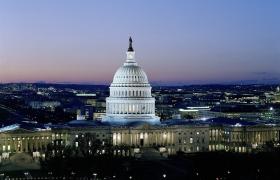Quick Contact

26th July 2019
The AUD has finished the week with a fifth straight day of losses against the USD and mixed results against most other G10 currencies. Losses were less pronounced against the GBP where the Pound was hampered by the sideshow offered by the swearing in of Boris Johnson as new PM of Great Britain and the subsequent mass exodus/sacking being dubbed ‘night of the blond knives’.
With the end to this week it looks like the AUD will give up most of its recent gains against the big currencies, leaving the stage set for an action packed August on the financial calendar.
For the moment though, 1 AUD will buy you:
0.6761 US dollars
72.222 Japanese yen
0.5981 euros
0.5363 Great British pound
0.8603 Canadian dollars
1.0065 New Zealand dollars
0.896 Singapore dollars
RBA Governor – Lowest rates are just the beginning
The AUD has now racked up 5 consecutive days of losses against the USD and most major currencies. A cocktail of record low interest rates, high iron ore prices and a stabilising housing market has pushed Australia's sharemarket to a new record high, with the All Ordinaries index, which tracks the nation's 500 biggest listed companies, breaking through the previous all-time high of 6873.2 points of November 2007, closing at 6901.9 points, after Reserve Bank governor Philip Lowe said interest rates would remain low for an "extended period".
Lowe spoke on the subject of “Inflation Targeting and Economic Welfare” at the Anika Foundation Lunch in Sydney, noting the RBA “is prepared to provide additional support by easing monetary policy further” with markets now betting the RBA will cut the cash rate to .75% by November and some economists predicting it will fall to .5% next year, as the central bank struggles to get inflation back within its target range of 2 to 3 per cent.
The RBA seems to understand the real difficulty will come with lowering the unemployment rate below the recent 5.24% compared to the RBA’s forecast of 5.0% in May and an ideal rate of 4.5%.
While the prospect of European Central Bank and Federal Reserve rate cuts may take the pressure off the AUD for the short term, the RBA meeting on August 6 and statement on monetary policy notes August 9 plus signs the iron ore market is retreating is keeping the AUD under plenty of pressure.
Any positive developments about the US and China will be a boost for the AUD as the dragon nation is Australia’s largest customer and litmus test for how well our exports are going. Expect the AUD to remain under plenty of pressure in the short term as the USD, GBP AND EUR all go through their own uncertainties.
BOJO hoping for fairytale honeymoon period
Now that one more Brexit sideshow is over and Johnson is sworn in as new UK PM, the real work can start chugging away on getting the UK out of the Eurozone by October 31st, whatever that may look like.
Boris Johnson will have his work cut out for him, facing a to-do list stuffed full of difficult tasks when he takes office, from negotiating a palatable Brexit strategy to handling an escalating diplomatic crisis with Iran where the Revolutionary Guard has seized a British oil tanker. A free-trade deal with the US is also a top priority and Boris has already been dubbed Britain Trump by his US counterpart in what could be the start of a blossoming relationship. Mr Johnson has also proposed an array of spending to support health, social care, policing and business in order to get things moving quickly from Theresa May.
Theresa May will return to serve as a backbencher in the House of Commons and goes down as one of the shortest serving Prime Minister’s in the last century, lasting a total of 1,106 days in office.
That’s actually pretty long in Aussie PM years.
Boris also wasted no time making the government his own, with 17 cabinet ministers changing on his first day in power dubbed by the media as the “night of the blond knives”. He vowed to take Britain out of the EU on October 31 — in 99 days time — “no ifs or buts” with a “better deal” than the one currently on the table.
Some uncertainty for the UK has been resolved with Johnson now PM and with a bit of luck for the dude, a honeymoon period may loom, and Johnson may initiate tax and policy changes to bolster a market-friendly profile. A lift in sentiment could trigger business investment activity and stimulate consumer confidence.
There are also risks Johnson forms a hard-Brexit Cabinet unwilling to negotiate with the EU in discussions, Irish hard border concerns remain unabated, The EU offer little intent to alter the 31st deadline if needed and the whole Brexit scenario keeps racing along to a fiery end.
There’s only one way to find out. Stay tuned to see how the GBP will perform against the AUD, NZD, USD and EUR in the face of continuing instability.
Signed up to our Travel Money Club? Everyone that joins is in the running to win $500 every month which is pretty darn handy while also staying up to date with all the latest fluctuations.
US and China back on speaking terms, but talk is cheap this deep in the Trade War
Even though Trump and President Xi Jinping agreed to a ceasefire at the G20 summit in Tokyo, things haven’t exactly been rosy for the heavyweight pair. On Monday, Huawei — a company that President Donald Trump has singled out for beef before — was the subject of a report that claimed it may have violated US sanctions on North Korea. The next day, Huawei announced it would sack US staff, a decision it blamed on American restrictions on its business.
The role Huawei plays in any trade deal is a big curveball. The world's largest telecommunications equipment maker and leading Chinese smartphone brand has been on a US trade blacklist since May.
In Tokyo, Trump said he would not impose new tariffs and said China agreed to make agricultural purchases, but Trump said on this week that China was not living up to promises to buy U.S. farm goods.
Complicating matters even more, the United States slapped sanctions on a Chinese company this week for violating a ban on buying Iranian oil. After that announcement, China didn't pull any punches, slamming what it called Washington's "bullying" behaviour.
China’s latest round of retaliatory tariffs put the combined tax rate on a bottle of American wine at 93%, pushing prices out of reach for much of the Asian country’s growing middle class.
Risks to the USD performance appear to be subsiding; lawmakers are working on a debt ceiling deal and US-China trade talks are set to resume next week. A comprehensive deal will remain elusive but there is certainly more hope this time round that a deal will be struck.
Companies like Caterpillar (CAT), one of the biggest components in the US Stock Market will certainly be hoping so too, their shares having plunged 4% in early trading due to the effect of the US/China Trade War on the bottom line.
In China, meanwhile, economic growth has slumped to its lowest level in nearly three decades. The country is struggling to rein in high levels of debt and consumers are spending less freely than they were a year ago.
All eyes will be watching these negotiations closely and any positive moves will be greatly appreciated by both the AUD and NZD that are both very export and China reliant economies. If the Federal Reserve also signals its intentions to cut interest rates by more than .25 basis points, the AUD and NZD will likely enjoy that in the short term too.
This blog is provided for information only and does not take into consideration your objectives, financial situation or needs. You should consider whether the information and suggestions contained in any blog entry are appropriate for you, having regard to your own objectives, financial situation and needs. While we take reasonable care in providing the blog, we give no warranties or representations that it is complete or accurate, or is appropriate for you. We are not liable for any loss caused, whether due to negligence or otherwise, arising from the use of, or reliance on, the information and/or suggestions contained in this blog. All rates are quoted from the Travel Money Oz website and are valid as of 26 July 2019.*Terms and conditions apply to Rate Guard. *Be in to WIN with the Travel Money Club. For full terms and conditions click here.












